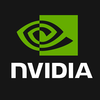Nvidia’s CEO Jensen Huang isn’t mincing words about the state of global chipmaking. In a recent BG2 podcast interview, he said China is only “nanoseconds behind” the U.S. when it comes to semiconductor technology. According to him, trying to wall off China from American AI chips doesn’t slow them down — it just limits U.S. influence. His argument is simple: if companies like Nvidia can sell into China, U.S. tech stays relevant in one of the biggest markets in the world.
Right now, Nvidia is trying to get its H20 AI GPU back into Chinese data centers. Shipments were on hold for months due to new U.S. export restrictions, but licenses started being issued again in August. The H20 isn’t Nvidia’s most powerful chip, but it’s been redesigned to comply with U.S. trade rules while still giving Chinese firms access to Nvidia’s software ecosystem. The company is already developing a successor chip that fits the same mold — not cutting-edge by global standards, but strong enough to keep Chinese customers tied to Nvidia.
Meanwhile, Chinese tech companies are moving fast to close the gap. Huawei has started shipping its Atlas 900 A3 supercomputing systems powered by the Ascend 910B processor, and it has a roadmap stretching through 2027 for even more advanced chips. These systems are built without relying on CUDA, Nvidia’s proprietary software stack, and are designed to support China’s own AI frameworks. That shift alone poses a long-term risk for Nvidia’s market dominance.
The momentum isn’t just coming from Huawei. Giants like Baidu, Alibaba, Tencent, and ByteDance are all investing in homegrown chips, either through their own teams or by funding startups. Tencent has even said its infrastructure is now fully ready to run on domestic silicon. Not long ago, Nvidia controlled roughly 95% of China’s AI accelerator market. With this kind of coordinated investment, that dominance is already under pressure.
Huang’s hope is that the U.S. and China can return to a more open trading environment. From his perspective, selling into China is about more than short-term revenue — it’s about keeping Nvidia at the center of global AI development. The H20 may not match Nvidia’s top-of-the-line hardware, but it gives Chinese companies a reason to stay connected to the Nvidia ecosystem. Whether U.S. policymakers agree with that strategy is another question. For now, Nvidia is trying to balance compliance with growth in a market it can’t afford to ignore.
Source: BG2 podcast

